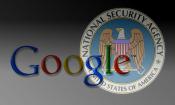Backlash over NSA spying sends Google racing to encrypt data
Posted by: Jon Ben-Mayor on 09/07/2013 07:11 AM
[
 Comments
]
Comments
]
In an attempt to guard its reputation as a reliable sentinel of user information, Google is accelerating efforts to encrypt information to prevent the NSA from spying on users.

Encrypting information flowing among data centers will not make it impossible for intelligence agencies to snoop on individual users of Google services, nor will it have any effect on legal requirements that the company comply with court orders or valid national security requests for data. But company officials and independent security experts said that increasingly widespread use of encryption technology makes mass surveillance more difficult — whether conducted by governments or other sophisticated hackers.
The NSA seeks to defeat encryption through a variety of means, including by obtaining encryption “keys” to decode communications, by using super-computers to break codes, and by influencing encryption standards to make them more vulnerable to outside attack, according to reports Thursday by the New York Times, the Guardian and ProPublica, based on documents provided by former NSA contractor Edward Snowden.
But those reports made clear that encryption — essentially converting data into what appears to be gibberish when intercepted by outsiders — complicates government surveillance efforts, requiring that resources be devoted to decoding or otherwise defeating the systems. Among the most common tactics, experts say, is to hack into individual computers or other devices used by people targeted for surveillance, making what amounts to an end run around coded communications.
“If the NSA wants to get into your system, they are going to get in . . . . Most of the people in my community are realistic about that,” said Christopher Soghoian, a computer security expert at the American Civil Liberties Union. “This is all about making dragnet surveillance impossible.”

Encrypting information flowing among data centers will not make it impossible for intelligence agencies to snoop on individual users of Google services, nor will it have any effect on legal requirements that the company comply with court orders or valid national security requests for data. But company officials and independent security experts said that increasingly widespread use of encryption technology makes mass surveillance more difficult — whether conducted by governments or other sophisticated hackers.
The NSA seeks to defeat encryption through a variety of means, including by obtaining encryption “keys” to decode communications, by using super-computers to break codes, and by influencing encryption standards to make them more vulnerable to outside attack, according to reports Thursday by the New York Times, the Guardian and ProPublica, based on documents provided by former NSA contractor Edward Snowden.
But those reports made clear that encryption — essentially converting data into what appears to be gibberish when intercepted by outsiders — complicates government surveillance efforts, requiring that resources be devoted to decoding or otherwise defeating the systems. Among the most common tactics, experts say, is to hack into individual computers or other devices used by people targeted for surveillance, making what amounts to an end run around coded communications.
“If the NSA wants to get into your system, they are going to get in . . . . Most of the people in my community are realistic about that,” said Christopher Soghoian, a computer security expert at the American Civil Liberties Union. “This is all about making dragnet surveillance impossible.”
Comments





